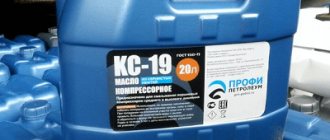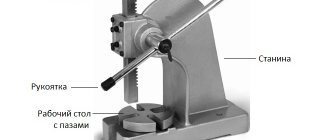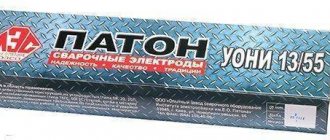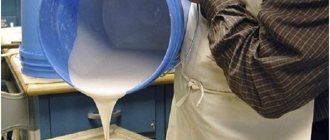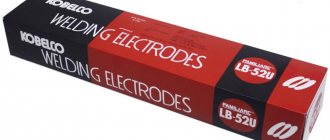Source of material: Kuznetsov A.I., Timofeev F.V., Kuznetsov A.A., Kormilitsyna V.E. Educational and reference manual. Petroleum products. in 2 hours. Part 1. Classification, nomenclature, regulatory requirements for quality. Ed. Ulyanovsk State University, Ulyanovsk, 2018, 249 p.
The subgroup of compressor oils includes oils intended for use as a lubricant for various types of compressors.
In accordance with their functional purpose, compressor oils are divided into 3 classes (Fig. 2).
Rice. 2. Division into classes of compressor oils
Functions of compressor oil
The lubricant material solves a number of problems aimed at ensuring stable operation of the compressor:
- lubricates rubbing parts, thereby extending their service life;
- cools the piston group, which heats up during operation;
- seals gaps;
- reduces detonation;
- ensures the tightness of the working chamber.
Insufficient oil level or absence of oil leads to a decrease in the tightness of the compression chamber and a deterioration in compressor performance.
Areas of application
Compressor oils have 3 main areas of application:
- Piston and rotary compressors.
- Turbocompressor machines.
- Refrigeration units.
In low- and medium-pressure piston and rotary industrial compressors, oils are used to service cylinders and valves, as well as to ensure the tightness of compression chambers. The main task of the lubricant in such installations is to reduce friction, wear and protect against corrosion. Since the compressed gas of a compressor has a high temperature, the lubricant must have high ignition and auto-ignition temperatures, have high oxidation resistance, and maintain viscosity in various working environment conditions.
When operating turbochargers, it is important not only to ensure the tightness of the components, but also to cool the compressed steam to the optimal temperature. Compressor oils form a film that allows the temperature of working vapors to be reduced at the final stage of the air compression process. The ignition temperature of such materials must not be lower than 180° C.
A feature of the operation of refrigeration compressors is the constant change in temperature and pressure of the working environment, and the presence of refrigerants. To service refrigeration units, oils must have chemical resistance and a low pour point.
Which oil is best to pour into a piston air compressor - basic properties
The design features of the piston unit dictate special requirements for lubricants that can ensure its uninterrupted operation. Ideal for lubrication is a closed oil pipeline system and a sealed housing. In a reciprocating compressor, the top parts of the piston and cylinder are in contact with the environment, and the oil supplied to the piston group contaminates the compressed air. There is no mechanical separation of the lubrication zone from the compressed air generation zone. This design feature requires finding a solution to two dissimilar problems:
- on the one hand, it is necessary to reduce the amount of lubricant to an acceptable minimum in order to ensure the purity of the compressed air;
- on the other hand, it is necessary to provide high-quality lubrication of the rubbing elements.
To solve these problems, the oil that needs to be poured into the air compressor must have special properties:
- good adhesion, due to which the lubricant is kept in a limited area and does not enter the air stream;
- stability of properties with increasing temperature - this is important, since the unit is prone to heating;
- high flash point, ensuring fire safety of the unit;
- ability to displace water particles;
- a strictly standardized viscosity value - a composition that is too liquid will flow out of the lubrication zone, and a composition that is too thick will be ineffective;
- minimal tendency to carbon deposits.
There is another important requirement that applies to all lubricants - the absence of substances harmful to the environment and human health.
Owners of air piston compressors often ask the question: is it possible to use automotive oils for internal combustion engines?
Answer: it is not recommended to use them in the piston group, since they do not have the necessary qualities. Compressor oil meets improved environmental characteristics compared to automobile oil, provides higher fire safety, and has other optimal viscosity parameters.
Air compressor. Filling with Oil. First Start.
What are the similarities between lubricants?
- Like motor consumables, compressor consumables have a synthetic, semi-synthetic, and mineral base. When choosing the composition of the base, the user acts on the principle of choosing between price and quality. Just like in car oils, synthetics last longer and are more expensive. Accordingly, the mineral base is an economy class (both in price and durability).
- The viscosity of compressor oil is one of the important characteristics, just like motor oil. This indicator is in the range of 7-30 mm²/s. Fluidity (that is, the ability to penetrate into the smallest gaps) depends on its value. Low viscosity facilitates the operation of mechanisms and does not allow harmful deposits to form. High viscosity ensures higher tightness (especially in piston circuits), while slowing down the operation of the entire system.
Compressor oil Lukoil Stabio for compressors of various classes - video
Main characteristics taken into account when choosing compressor oils
The main properties of lubricants for compressors running on an electric motor or internal combustion engine:
- Viscosity. Characterized by values 1-15. The optimal value is 10-12. This composition is well retained in the lubrication zone. A product with a lower viscosity is consumed very quickly. Viscosity also characterizes the tendency of a lubricant to lose performance at high temperatures. The higher the viscosity value, the more resistant the product is to heat.
- Availability of additives. High-quality lubricants from well-known manufacturers always contain additives that increase valuable performance properties - anti-oxidation, anti-foaming, anti-corrosion, temperature stability. In domestic labeling, the presence of additives is indicated by the letter “P”, in foreign labeling – I.
- Self-ignition temperature. For air compressors, lubricants with this parameter not lower than +350 °C are recommended.
- Pour point. This is an important quality taken into account when it is necessary to operate compressor equipment in winter conditions.
Composition and capacity
Depending on operating conditions, different types of compressor oils can be used. When no increased requirements are placed on the oil, both mineral and synthetic oils with a basic set of additives can be used. Under intense loads and extreme climatic conditions, special materials with an additional additive package are used. They are made from petroleum, which is deeply purified and then added with anti-wear additives, oxidation and corrosion inhibitors.
Compressor oils are usually supplied in containers made of plastic, holding 5, 10, 15 kg. They can be canisters, other vessels, as well as barrels with a capacity of 150–200 kg.
How to choose the right oil to fill an air piston compressor
The best option is to purchase the oil specified in the technical data sheet for the compressor and fill it in a volume that is slightly higher than that recommended by the manufacturer.
If the technical certificate for the equipment is missing for some reason, you can resort to the following methods:
- find the official website of the manufacturer or company producing compressors with similar technical characteristics;
- get advice from a store that is an official dealer of the brand, or from a service center that services such units;
- When purchasing used equipment, ask the seller about the features of servicing compressor equipment.
A particularly important characteristic that must be taken into account when choosing a lubricant is temperature limitation.
Shell Corena S2 P 100
One of the best compressor oils on the Russian market. Due to its manufacturing features, it has characteristics that bring its quality closer to synthetic oils. Shell Corena S2 P 100 has a long service life. Thanks to its use, you can significantly increase the frequency of scheduled equipment maintenance.
The oil has the following advantages:
- High anti-corrosion properties. Allows you to reliably protect the main components of equipment. Metal surfaces are practically not exposed to corrosion.
- Excellent anti-foam characteristics. Thanks to them, air will be released from the total mass of oil without unnecessary foaming.
- Demulsifying properties. These properties ensure rapid removal of water formed in the system. This property allows you to improve the performance characteristics of the equipment, and also significantly reduces the likelihood of corrosion.
Examples of oil labeling
- K-19, KS-19 are low-sulfur oils that can be used in medium and high pressure compressors.
- K3-10 – compositions that maintain performance characteristics up to +200 °C.
- K2-24, K3-20, K4-20, K2-220 - such oils can be poured both into compressor engines and into the piston area.
- VB, VB-I, DAG – are designed for use in any type of compressor equipment in which the temperature does not exceed +140 °C. The presence of the letter I in the designation indicates the presence of special additives that increase the performance properties of the lubricant composition.
- VC, VC-I, DAA. They are in demand in permanently installed units with a temperature limit of +160 °C, and in mobile units operated in open space, +220 °C.
- VD, VD-I, DAB. Such oils are poured into powerful air piston compressors with a temperature limit of +220 °C, regardless of the location of operation of the equipment.
Production
The use of a synthetic base for the manufacture of KS-19 is excluded by GOST requirements.
During processing by hydrotreating, sulfur content is reduced simultaneously with the proportion of oxygen-containing compounds, which provides the lubricant with minimal oxidation.
The base is brought to the required viscosity, then the required minimum of additives is added. Let's summarize
KS-19 oil has the required kinematic viscosity, high temperature stability with a low degree of self-ignition. It has a number of advantages, which are confirmed both by tests and by the experience of users of compressor devices - domestic and industrial.
What makes the lubricant accessible to all categories of consumers is not only the optimal price, but also the variety of liquid pouring options.
It is possible to replace KS-19 with MS-20 oil.
Specialists in the supply departments of enterprises are offered draft KS-19 in any required quantities. And for everyday use, the oil is sold in cans and bottles of various sizes, which gives convenience and freedom of choice.
DVR NEOLINE X-COP 9100S
Fugicar FC8 mirror-on-board computer
Black Size – gel for penis enlargement
Previous
Compressor oil KS-19
What kind of oil goes into an air piston compressor - recommended brands
For uninterrupted operation of air compressor equipment, it is recommended to use only special certified compounds. Possible options:
- Ariane K-12. Inexpensive mineral oil, which is poured into compressors providing medium and high pressure levels. Features a reduced amount of sulfur. Another low-sulfur product is Ariane K-28. Its advantage is the complete absence of mechanical inclusions.
- BP Enersyn GCS-180. A synthetic composition that cannot be combined with a mineral one. Designed specifically for piston compressor units. Contains antioxidants.
- Fubag. Oils of this German brand can be used in air compressors of other brands, including Chinese ones. They contain a complex of additives that prevent oxidation processes at any temperature and the formation of coke deposits.
- KM100 Enkor 40612. Economical due to the minimum level of evaporation. This oil can be poured into the compressor in winter, since it is adapted to work at low temperatures.
- Mobile Rarus. Product suitable for all types of air compressors. It is characterized by: reduced viscosity, high combustion temperature, low ability to form carbon deposits.
- Mineral oil "Zubr ZMK-PS" is an acceptable option for household compressors. This wear-resistant product does not require frequent replacement.
Shell Corena S4 R 46
The oil is developed using a unique technology. Its main feature is that improved additives are added during manufacturing. They provide high quality oil and maximum equipment protection. This type of oil does not lose its performance properties even when used in extreme conditions.
Main advantages:
- Thermal stability and excellent anti-corrosion properties. The oil reliably protects metal surfaces from premature wear and corrosion.
- Availability of an ashless package of anti-wear additives. Allows you to increase the service life of bearings.
- Excellent anti-foam properties. The air is separated from the oil without creating much foam.
- The production technology ensures complete environmental safety of the oil.
Which oil is better to pour into the compressor - mineral or synthetic?
Mineral products are cheaper. They are usually used in compressor equipment used periodically, since they have a short operating period. Mineral lubricants are characterized by a strict temperature limit, usually +90 °C. At higher operating temperatures, the oil may ignite or cause detonation.
Synthetic compressor oils have a higher price, justified by a set of valuable characteristics:
- possibility of use at elevated operating temperatures: +180…+200 °C;
- maintaining performance characteristics at subzero temperatures, which allows the use of synthetic lubricants in winter;
- long service life, which is 3-4 times higher than that of mineral products.
Synthetic compressor oils are usually purchased for powerful, frequently used units.
Varieties
Each type of compression oil has a different set of characteristics, which is important to consider when choosing a lubricant for industrial use. High-quality oil will reduce the risk of explosion and fire, increase tightness, and extend the service life of units.
There are 3 main types of compressor lubricants based on their chemical composition:
- Mineral are economy class lubricants that are made from petroleum products. They are suitable for indoor use, for lubricating lightly and moderately loaded devices. The operating temperature should not exceed 90°C, otherwise the risk of ignition and detonation increases. The main advantage is low price.
- Synthetic - made from polymers. Such lubricants belong to a high price category, however, large initial costs are justified due to the ability of the material to maintain viscosity under conditions of elevated temperature (180-200 ° C) and elevated pressure, and the ability to work in extreme conditions in the open air. This oil will be the optimal choice for high-pressure compressors. The service life is 2-4 times higher than that of semi-synthetic.
- Semi-synthetic are universal lubricants in the mid-price segment that have an optimal set of viscosity-temperature characteristics that help protect the surface of industrial equipment from corrosion and wear.
To improve the physical properties, various additives are added to the material to increase wear resistance, viscosity, extreme pressure, and anti-corrosion properties.
Domestic standards provide for 4 groups of compressor oils according to operating conditions:
- Designed for operation under moderate load conditions at a discharge temperature not exceeding 160° C.
- Used for operation at temperatures up to 180°C under moderate load conditions.
- Used at high loads and working environment temperatures up to 200° C.
- Designed for use in very difficult and extreme conditions, where temperatures reach up to 200° C.
Imported compressor oils are designated according to DIN 51506 standard:
- VB(L) – marking is applied to materials intended for use in all types of equipment where the discharge temperature does not exceed 140° C.
- VC(L) – this means the possibility of use in stationary installations with a discharge temperature of up to 160 ° C or mobile installations with a discharge temperature of up to 220 ° C.
- VDL - the symbol indicates the ability to use the oil for operation at discharge temperatures up to 220° C.
